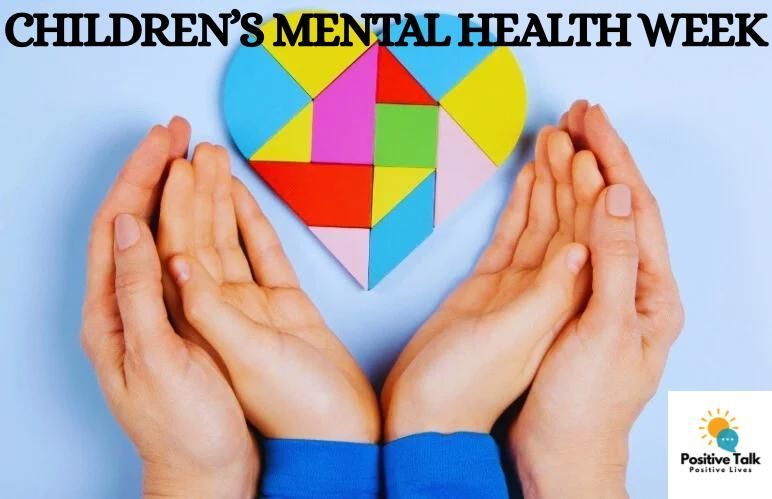Understanding Anxiety: What It Is and How to Seek Help
Anxiety is a natural response to stress or danger, often described as a sense of unease, worry, or fear. While it is normal to feel anxious occasionally, persistent anxiety can interfere with your daily life, relationships, and your overall wellbeing. At Positive Talk we are here to help you understand anxiety, explore the available treatment options and take steps towards a healthier and a more balanced life.
What Is Anxiety?
Anxiety is more than just feeling stressed or worried. It is a complex combination of physical and emotional responses that can greatly impact your quality of life. For some people anxiety is situational, such as before an important exam or a job interview. While for others it is a persistent condition that affects their ability to function effectively in daily life.
Common Symptoms of Anxiety
Emotional Symptoms:
- Excessive worry and fear
- Irritability and restlessness
- Difficulty concentrating
- Feeling overwhelmed or out of control
- Racing thoughts
- A sense of impending doom
Physical Symptoms:
- Increased heart rate and palpitations
- Sweating and trembling
- Shortness of breath
- Dizziness or light-headedness
- Stomach discomfort and nausea.
- Muscle tension and fatigue
- Sleep disturbances
Don't let anxiety control your life any longer. Our experienced team of counsellors at Positive Talk are here to help you find understanding and coping mechanisms to help and support you in every way possible. Contact us today to schedule your confidential consultation and take the first step toward recovery.
Types of Anxiety Disorders
Anxiety can be present in different forms, including:
- Generalised Anxiety Disorder (GAD): Chronic worry about everyday issues.
- Panic Disorder: Recurrent panic attacks accompanied by physical symptoms.
- Social Anxiety Disorder: Fear of social situations or being judged by others.
- Phobias: Intense fear of specific objects, situations, or activities.
- Obsessive-Compulsive Disorder (OCD): Repetitive, unwanted thoughts and compulsions.
- Post-Traumatic Stress Disorder (PTSD): Anxiety following traumatic events.
If you identify with any of these symptoms, it’s important to know that help is available.
How to Get Help for Anxiety
Managing anxiety is possible with the right support and strategies. If you or someone you care about is struggling, here are the first steps to take toward relief and recovery:
- Acknowledge Your Feelings: Recognising and accepting that you are experiencing anxiety is the first and most crucial step. It’s normal to feel overwhelmed or unsure, but acknowledging these feelings allows you to address them constructively.
- Speak to a Professional: A therapist/counsellor or doctor can assess your symptoms and recommend appropriate treatment options tailored to your needs.
- Reach Out for Support: Opening up to trusted friends or family members can reduce feelings of isolation and provide you with emotional relief. You do not have to go through this alone.
Remember you are not alone, and help is available. Taking the first step, whether it’s speaking to someone, trying a calming activity, or booking an appointment can make a world of difference. Anxiety doesn’t define you and with the right support, you can regain a sense of control and peace.
Types of Therapy for Anxiety
There are several evidence-based therapies available to help manage and reduce anxiety. The type of therapy that’s right for you will depend on your personal preferences and the nature of your anxiety.
- Cognitive-Behavioural Therapy (CBT)
CBT is one of the most effective treatments for anxiety. It focuses on identifying and challenging negative thought patterns that contribute to anxiety. By learning/understanding a variety of different coping mechanisms and understanding triggers that present to the individual this may reduce their symptoms and improve their quality of life. - Relaxation Techniques
Learning to relax can help counteract the physical symptoms of anxiety. Techniques include deep breathing and Art Therapy. - Deep Breathing Exercises
Deep breathing helps calm the body’s stress response and reduce feelings of anxiety. Practicing this regularly can significantly improve your ability to manage anxiety. - Mindfulness and Meditation
Mindfulness teaches you to focus on the present moment without judgment. This approach can help reduce anxious thoughts and improve emotional regulation. Meditation, often a component of mindfulness, can promote relaxation and a sense of inner peace. - Exposure Therapy
This therapy gradually exposes individuals to fearful situations or objects in a controlled way. Over time, this reduces avoidance behaviours and helps manage anxiety effectively. - Acceptance and Commitment Therapy (ACT)
ACT combines mindfulness strategies with behaviour change techniques. It encourages individuals to accept their anxious thoughts rather than fight them and to commit to actions that align with their values despite their anxiety.
Lifestyle Changes to Support Therapy
In addition to formal therapy, certain lifestyle adjustments can help manage anxiety:
- Regular Exercise: Physical activity
- Healthy Diet: Meal planning
- Adequate Sleep: Anxiety often gets worse with insufficient sleep.
- Social Connections: Spending time with supportive people can ease feelings of isolation.
Medications for Anxiety
For some people, medication may be a helpful addition to therapy.
Always consult with a healthcare professional before starting or stopping any medication.
Why Choose Positive Talk for Anxiety Treatment?
- Experienced anxiety therapists/counsellors
- Personalised treatment approaches
- Evidence-based therapeutic techniques
- Flexible scheduling options
- Supportive and confidential environment
- Proven track record of helping clients overcome anxiety.
Living with anxiety can feel overwhelming, but seeking help can transform your life. Therapy provides tools to understand your anxiety and regain control. Early intervention can prevent symptoms from worsening and improve your mental and physical health. At Positive Talk, our experienced counsellors are dedicated to helping you with your anxiety symptoms and how best to support. Contact us today to take the first step toward a brighter future.
Your Journey to Recovery Starts Here
Anxiety is a common but treatable condition. By understanding what anxiety is, recognising when to seek help, and exploring available therapies, you can start your journey toward healing. With professional support and the right tools, managing anxiety is within your reach.
Remember, you don’t have to navigate this journey alone. At Positive Talk, we’re here to guide and support you every step of the way. Call us or fill out our online contact form or give us a call today to learn more about our services and how we can help you live a more fulfilled life.
Article created by Sureya at Positive Talk










